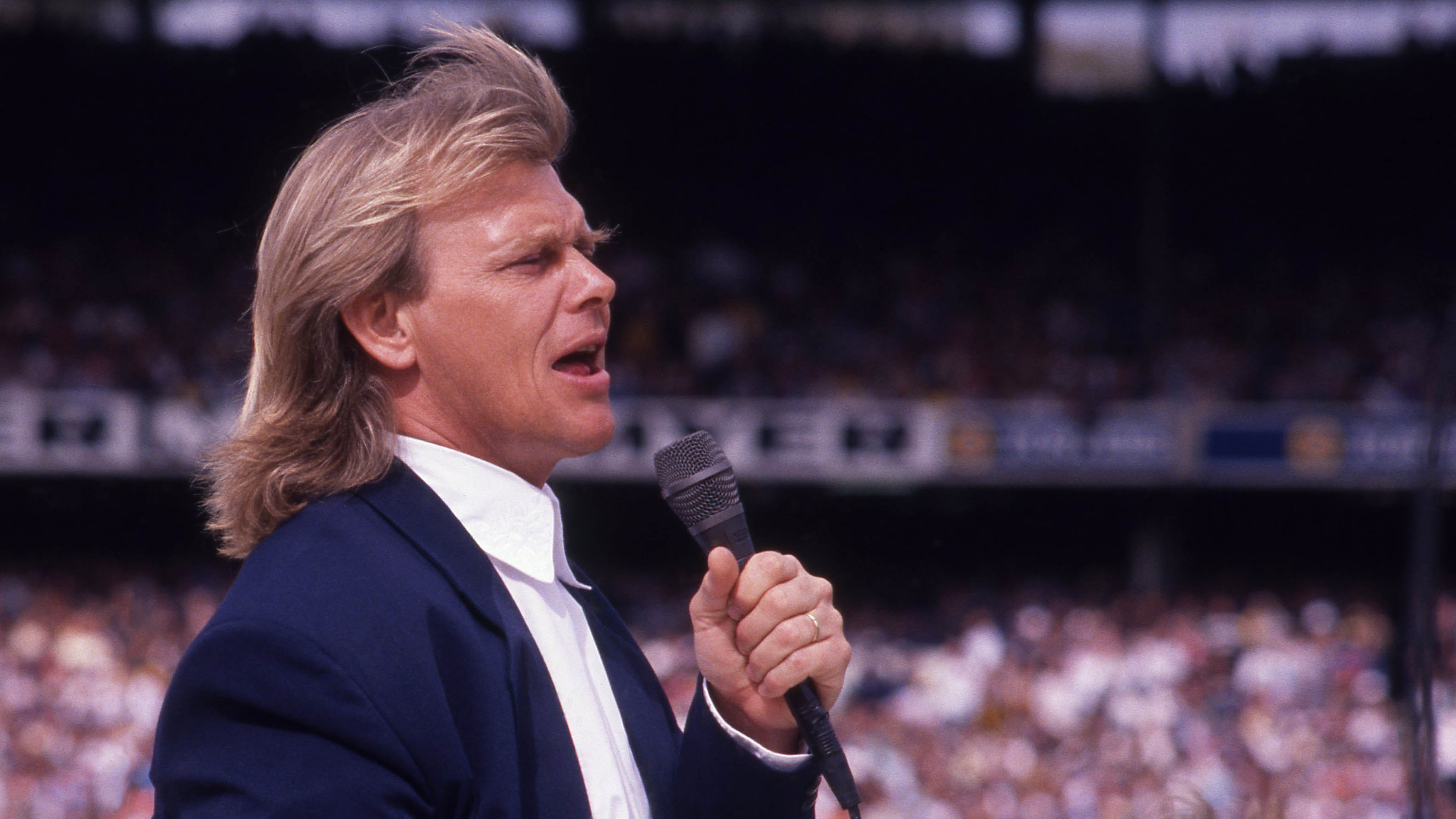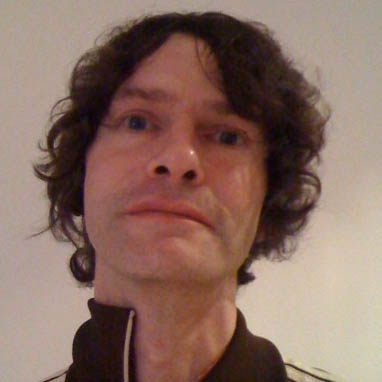“I’d overslept and didn’t make the march... I was annoyed at myself and that’s where the idea for You’re the Voice came from. If you want to do something you have to go out and do it yourself”
How John Farnham’s '80s protest anthem was inspired by missing a CND demo

Want all the hottest music and gear news, reviews, deals, features and more, direct to your inbox? Sign up here.
You are now subscribed
Your newsletter sign-up was successful
Some songs have what atomic scientists might call a long half-life. Who’d have guessed Journey’s early 80s AOR hit Don’t Stop Believing would have had an unlikely revival in the early 2010s? Or that Don’t Stop Me Now, a middling late 70s hit would become one of Queen’s biggest songs long after the band’s heyday.
So it is with You’re The Voice. It’s recently been used in an unofficial campaign video for Kamala Harris. But it’s far from the fist time it’s been repurposed for political ends – it was prominent in the Yes campaign for the Australia Indigenous Referendum campaign last year, but even prior to that has been used in campaigns for Australian state and federal elections and rather more contentiously was sung by Aussie anti-lockdown protestors during the Covid years.
So it’s ironic that its initial inspiration was from its writer missing a demo. Yes, just as Woodstock was composed by Joni Mitchell after she missed the epochal festival, You’re The Voice was the originally written by a man who was frustrated at himself for oversleeping on the day of the huge CND rally in October 1983, a high point of the early 80s anti-nuclear movement which drew over 400,000 people to Hyde Park.
That man was Chris Thompson who had sung with Manfred Mann’s Earth Band, including their 1976 hit Blinded By The Light. He had set up a writing session with Andy Qunta who had himself written for the Earth Band and Maggie Ryder, an ex-backing singer for the Eurythmics and Marvin Gaye.
“I’d overslept and didn’t make the march,” Thompson remembered in an interview with News Corps Australian Network. “We were watching it on TV. I was annoyed at myself and that’s where the idea for You’re the Voice came from. If you want to do something you have to go out and do it yourself.”
They worked all afternoon in Thompson’s Hendon studio. After Qunta and Ryder left Thompson came up with the ‘woo-ah-ooh-ooh’ hook. Then Ryder called back saying she’d come up with a melody line for the chorus which fitted just perfectly.
“After that we never got in the same room again,” Thompson recalled. “We spoke on the phone about lyrics but I kept working on it in my studio. As it progressed I got the title You’re the Voice and had verse and chorus lyrics. I thought it was a good song but the lyrics weren’t as good as the music.”
Want all the hottest music and gear news, reviews, deals, features and more, direct to your inbox? Sign up here.
It was at this point that Thompson contacted Keith Reid, the co-writer of Procol Harum’s huge summer of love hit A Whiter Shade Of Pale. Reid agreed to come on board to nip and tuck what Thompson and co already had: “Getting Keith to come and help me rewrite the lyrics was a masterstroke.
"He’s a fantastic lyricist. He was working with something that was 75 per cent finished. He wrote his 25 per cent. He came up with some very important lines like ‘We’re all someone’s daughter/ We’re all someone’s son’. He got rid of what I called the ‘yuck’ lines. It was a sentimental protest song, but with a few yuck lines.”
On the other side of the world was a singer named John Farnham. Born in the East End of London, Farnham’s family had emigrated when he was aged 10 and he was probably best known for being a teen star, Little Johnny Farnham, as he was styled back then and a 1967 novelty song Sadie (The Cleaning Lady). By the early 80s his career was on the slide - he was essentially on the Aussie cabaret circuit.
Things had got so bad that his manager, Glenn Wheatley, had remortgaged his house - without telling his wife - in an attempt to finance Whispering Jack, an album he was certain was his friend’s last chance of a comeback.
One of their first tasks was to locate a hit. “We had people on the payroll people employed to look for songs,” said Wheatley in an interview with Australia News Network. “It was expensive because it took a long time to make.”
Wheatley and Farnham leafed through over 2000 songs in their quest. They had turned down We Built This City which would become a 1985 hit for Starship before they chanced across
You’re The Voice. By this time Thompson had given up on the idea of recording it himself and was looking for someone else to take it on. Initially he wasn’t too keen on giving away the song to some Aussie has-been.
“I got a call saying ‘this guy called John Farnham wants to do You’re the Voice’ and I said ‘You’ve got to be joking. He’s not doing it,’” Thompson recalled. “The only thing I knew about John Farnham was Sadie the Cleaning Lady. I told them he’s like a joke in Australia, absolutely no way is he doing that song and I put the phone down. Two hours later I got another call saying ‘He really wants to do it, he’s making this big comeback record, he wants this for the album’. They persuaded me to allow him to record it - my feeling is he’d already recorded it - and if I didn’t like it I could say no.”
Farnham and his producer Andy Fraser kept most of Thompson’s demo as it was. It was the mid-80s and the era of the Fairlight so instead of conventional drums, the pair sampled a car door being slammed to give the track the familiar ‘clapping’ sound. The finishing touch was the addition of an instrument rarely heard on pop records in any decade: the bagpipes.
Indeed you can count the number of chart hits that feature the pipes on one hand – Mull Of Kintyre and er Wizzard’s Are You Ready To Rock. Rather more relevant was their use on one of Farnham’s favourite tracks: AC/DC’s It’s A Long Way To The Top (If You Wanna Rock n’ Roll). It necessitated putting the entire song in a different key – B flat, the only key bagpipes in play in. But it did the trick. “John thought they’d sound good,” says Fraser. “He thought he could sneak them onto that song and he did and it worked. They’re real bagpipes too.”
With the song in the bag, Wheatley then had the uneviable task of getting people to listen to it. Farnham’s novelty past counted against him and his manager initially had to release the song independently. “I couldn’t get anyone to take the punt. I knew people at radio would still have a problem playing a John Farnham song, they’d still think of him as Johnny Farnham. I had a few stations straight up tell me ‘We’ll never play a John Farnham song, he’s the Sadie man’. So I put it out on a white label without his name on it.”
Gradually radio stations started coming round. Farnham appeared on TV a couple of times and then the song was added to 2Day FM in Sydney, an adult contemporary station similar to Radio 2. A video was cobbled together on a shoestring budget of $5000. Eventually You’re The Voice entered the Aussie Top 40 in October 1986 and once there was momentum behind it, there was no stopping it. Four weeks later it had reached Number One.
Next it conquered Europe. It reached Number One in Germany and Sweden and was a Top Ten hit around the continent. Gratifyingly for Farnham it reached Number Six in his home country of the UK in June 1987.
However, the US proved a harder nut to crack: “The US record company wanted someone else to mix it,” laments Fraser. “He left the claps off at the front. It went out and didn’t do much. The US was the market that missed out the most but that’s how it is.” The main beneficiaries of this were Canadian AOR heavyweights Heart who recorded the song and had a worldwide hit with it in 1991.
Since then You’re The Voice has become a staple of oldies stations across the world. In Australia though its status is somewhere close to national anthem. With its stirring feel, big singalong chorus and lyrics vague enough to be adopted by any cause, it’s one of those songs that gets sung in sports arenas and wheeled out at any important outdoor event.
In 2009 at the Sound Relief concerts to raise funds of bush fires and floods, Farnham found himself singing it with Coldplay (who of course have made good use of ‘woah-oh’-style refrains in their own songs). Ten years later it was used by the Planet Rock AllStars featuring the likes of Bruce Dickinson, Joe Elliot and Alice Cooper on a charity single to raise money for MIND. And of course it became the anthem for the Yes campaign for last year’s Australian referendum.
And it did the trick of reviving Farnham’s career. The Whispering Jack album became a huge blockbuster, reaching Number One for 26 weeks in Australia and shifted 1.68 million copies – that’s 24 (yes twenty-four) times platinum in Oz. It remains the biggest selling album by an Australian artist in their home country.
Not bad for a song that might not exist had its creator woken up on time all those years ago. “It’s been a nice earner,” reflects Thompson. “It makes life a lot easier for us all. We’re all very happy campers because of it.”

Will Simpson is a freelance music expert whose work has appeared in Classic Rock, Classic Pop, Guitarist and Total Guitar magazine. He is the author of 'Freedom Through Football: Inside Britain's Most Intrepid Sports Club' and his second book 'An American Cricket Odyssey' is due out in 2025.

